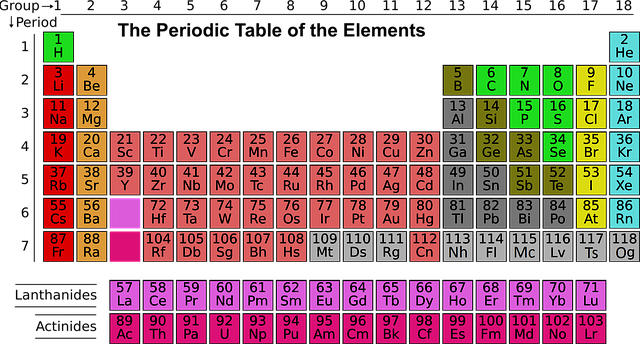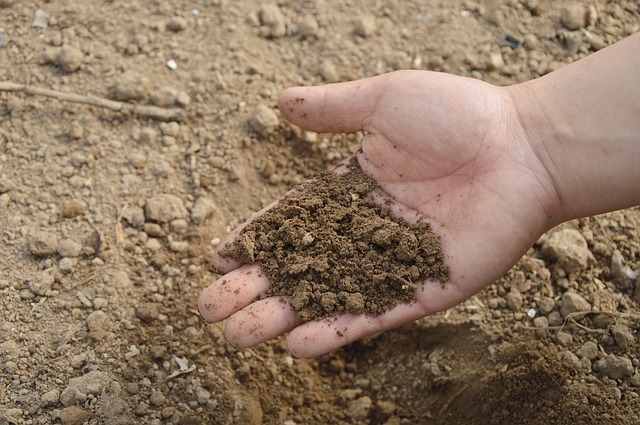Although kratom is a relatively new herb in the Western world, many people have discovered its properties and use it daily. Nevertheless, Mitragyna speciosa has been subjected to controversy for some time. In the last few years, kratom has been under the spotlight of both the DEA and the FDA.
Back in 2016, the DEA made some efforts to place kratom in the Schedule I of the Controlled Substances Act, but thanks to kratom’s advocates, they revoked their decision. Since then, kratom has been scrutinized by the FDA, who are constantly releasing information that is, in many cases, biased or misleading. So far, the FDA has linked kratom to a salmonella outbreak back in 2018 and to high heavy metal content. Since 2018, there have been no reports of kratom and salmonella infections. But, how about heavy metals? We have investigated further into this subject and below is what we’ve discovered about kratom and heavy metals.
What Are Heavy Metals?
You probably already know that heavy metal is a music genre. But what are heavy metals in nature? Heavy metals refer to metallic chemical elements with a relatively high density compared to water. Due to this, a high concentration of heavy metals in foods can be toxic and dangerous for humans and animals alike. However, not all heavy metals are toxic in normal concentrations. In fact, some of them are necessary for our system.
Some of the most dangerous heavy metals to the environment are mercury (Hg), lead (Pb), cadmium (Cd), thallium (Tl), copper (Cu), zinc (Zn), arsenic (As) and chromium (Cr). The danger of heavy metals resides in the fact that they can’t be degraded. Moreover, they tend to bioaccumulation and biomagnification. This means that they accumulate in living organisms in higher concentrations than foods or the environment. And this concentration increases up the food chain.
High Level of Heavy Metals: Causes
Heavy metals are small particles that accumulate in foods, water and even in the air that we breathe, poisoning our system and causing various health problems.
Heavy metals can enter our system in various ways:
- Inhalation: pollution, smog, cigarettes
- Through the skin: cosmetics, sunscreen products, hair coloring products
- Through our mouth: foods, water
But why do heavy metals accumulate in the environment? Although they are naturally occurring elements that are found throughout the earth’s crust, human activities increase heavy metal contamination, i.e.: mining, industrial production, and agricultural and domestic use of metals and metal-containing compounds.
Foods can be contaminated by heavy metals from various sources, including:
- Soil contamination by chemical fertilizers, residual muds, and pesticides.
- Water contamination that affects fish, mollusks, and crustaceans.
It is believed that today we are 500-1000 times more exposed to heavy metals than our ancestors.
How Do Heavy Metals Affect Your Health?
First, you should know that some levels of heavy metals are necessary for our health:
- Selenium prevents cell damage and plays an important role in thyroid health.
- Zinc helps our immune system and plays a crucial role in cell growth.
- Iodine helps our metabolism.
- Copper contributes to red blood cell formation and to maintain our nerves, bones and blood vessels in good condition.
- Chromium helps maintain normal cholesterol levels.
However, high levels of heavy metals can have a very negative impact on our health. Let’s see how different heavy metals affect your health:
- Mercury harms our immune system. Symptoms of mercury poisoning include appetite loss, metallic taste in your mouth, fatigue, and depression.
- Lead affects memory, cognitive function, and anemia.
- Aluminum can provoke fatigue and affect your nervous system. It is believed that high aluminum levels can be a cause of Alzheimer’s.
- Arsenic is very poisonous and could result in various types of cancer.

Kratom and Heavy Metals: Should You Worry?
So, now to the big question. Is kratom affected by heavy metals? Like any other plant, it could be exposed to heavy metals that might be present in the soil where it grows. But, contrary to other plants kratom has one peculiarity:
Mitragyna Speciosa is a tree that grows in the wild in the rainforest areas of South East Asia. Kratom laborers collect the leaves directly from the trees that grow in these areas. For this reason, the soil where kratom grows is not usually fertilized with chemicals or affected by industrial activities.
On the other hand, the FDA released information in the past about kratom being contaminated with “disturbingly large amounts of heavy metals”. Although this was a big concern and warning in the past, there hasn’t been any recent news about this subject. On the other hand, it is well-known that the FDA is not very fond of kratom. So, this makes us think that the FDA reports might have been exaggerating.
However, the above doesn’t mean that kratom is always 100% free of contaminants, there might be some areas where kratom might be more exposed to contamination. That’s why it’s very important that you only buy your kratom from reputable vendors who periodically test their products for contaminants, including bacteria and heavy metals. If you still have doubts or concerns, do not hesitate and contact your vendor to ask them directly whether or not they test their products for heavy metals. Reputable vendors should not have any inconvenience to share their lab results with you.
How to Remove Heavy Metals From Your System?
At this point, you might wonder if there are ways to remove heavy metals from your system. Since they accumulate in your organs and tissue, removing heavy metals is not an easy task. So the first thing that you must do is try to stay away from them.
Having said that, you may want to take the following measurements to remove heavy metal from your body:
- Eat foods to help your liver, kidneys, and intestines to get rid of toxins and heavy metals. Some of the best foods for this purpose are celery, seaweed, broccoli, onions, apples, walnuts, and parsley.
- Vitamin supplements can also be of help, especially B-1, B-6, and C.
Finally, if you think that you may suffer from heavy metal poisoning, it is very important to ask your doctor, who will prescribe the best treatment for you.



